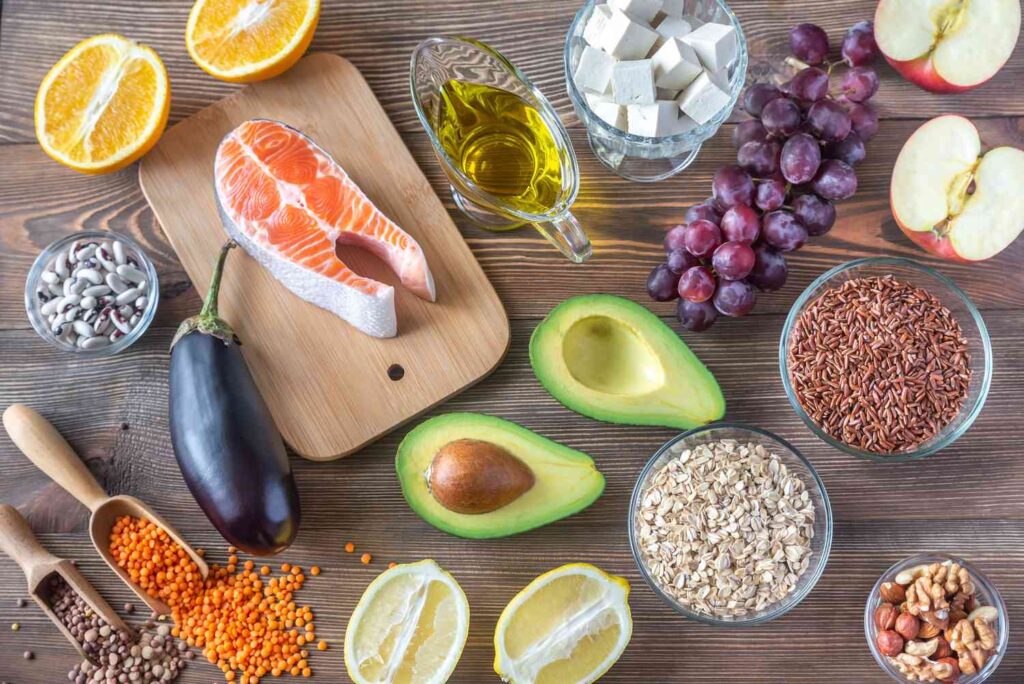Introduction:
Our hearts work tirelessly to keep us going, pumping blood and ensuring our bodies function seamlessly. However, sometimes our lifestyle choices can throw a wrench into this well-oiled machine, leading to elevated cholesterol levels and potential heart issues. The good news is that making small, positive changes in our daily habits can go a long way in lowering cholesterol and promoting heart health. Let’s explore some human-friendly ways to keep our cholesterol levels in check.
Cholesterol ways:
- Mindful Eating:The journey to lower cholesterol starts on our plates. Embrace a diet rich in fruits, vegetables, whole grains, and lean proteins. Consider the Mediterranean diet, which emphasizes olive oil, nuts, and fish – all known to boost heart health.Reduce saturated and trans fats found in fried foods, processed snacks, and certain oils. Opt for healthier cooking methods like grilling, baking, or steaming, and watch portion sizes to maintain a healthy weight.
- Fiber-Rich Foods:Fiber is a superhero when it comes to lowering cholesterol. Include more soluble fiber in your diet, found in oats, beans, lentils, fruits, and vegetables. Soluble fiber binds to cholesterol particles, helping to eliminate them from the body.Aim for at least 25-30 grams of fiber daily, and consider whole foods rather than supplements, as they come with additional nutrients crucial for overall health.
- Regular Exercise:Physical activity is a powerful tool in the fight against high cholesterol. Aim for at least 150 minutes of moderate-intensity exercise per week, such as brisk walking, swimming, or cycling. Exercise not only helps raise good cholesterol (HDL) but also lowers bad cholesterol (LDL) and promotes weight management.Find activities you enjoy to make regular exercise a sustainable part of your routine. Whether it’s dancing, hiking, or playing a sport, the key is to keep moving.
- Healthy Fats:Not all fats are created equal, and incorporating healthy fats into your diet can make a significant difference. Include sources of omega-3 fatty acids, such as fatty fish (salmon, mackerel, and trout), flaxseeds, and walnuts. These fats can help lower triglycerides and reduce inflammation.Replace saturated fats with healthier options like avocados, olive oil, and nuts. These choices can contribute to a better lipid profile and overall heart health.
- Quit Smoking:Smoking not only damages your lungs but also wreaks havoc on your cardiovascular system. The chemicals in tobacco smoke can lower good cholesterol levels and promote the buildup of plaque in the arteries, increasing the risk of heart disease.Quitting smoking is one of the most impactful steps you can take for your heart health. Seek support from friends, family, or professionals to kick the habit for good.
- Limit Alcohol Intake:While moderate alcohol consumption may have some cardiovascular benefits, excessive drinking can lead to higher cholesterol levels and other health issues. If you choose to drink, do so in moderation – one drink per day for women and up to two drinks per day for men.Consider alternatives like red wine, which contains antioxidants that may benefit heart health when consumed in moderation.
- Stress Management:Chronic stress can contribute to unhealthy habits that impact cholesterol levels. Find effective stress-management techniques, such as meditation, yoga, or deep breathing exercises. Engaging in activities you enjoy, spending time in nature, and fostering strong social connections can also help alleviate stress.

Conclusion:
Lowering cholesterol is a journey that involves making positive lifestyle changes. By adopting a heart-healthy diet, staying physically active, and addressing habits like smoking and excessive drinking, you can take charge of your cardiovascular health. Remember, small, consistent steps lead to significant improvements over time. Embrace these changes with a commitment to your well-being, and your heart will thank you with every beat.





